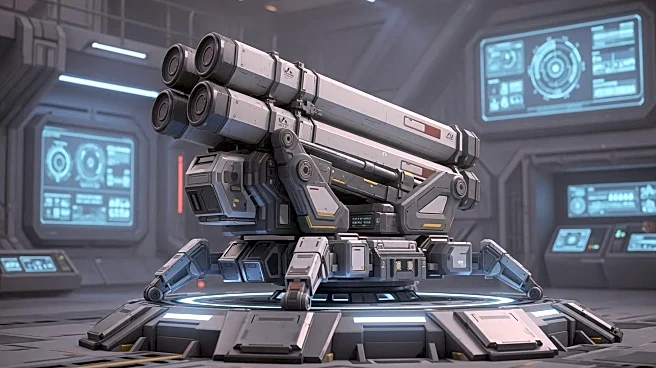What's Happening?
AeroVironment has been awarded a contract by the US Army to supply the Next-Generation counter-uncrewed aircraft systems (C-UAS) missile, known as the NGCM. The contract, valued at $95.9 million, is part of the Long-Range Kinetic Interceptor (LRKI) program.
AeroVironment will develop and deliver its Freedom Eagle (FE-1) kinetic C-UAS missile, which is designed to neutralize Groups 2 and 3 UAS, and has capabilities against Group 1 UAS, fixed-wing, and rotary wing aircraft. The FE-1 missile has undergone successful live-fire demonstrations and launch tests. AeroVironment's executive vice president, Jimmy Jenkins, emphasized the missile's role in strengthening national air defense and addressing evolving threats.
Why It's Important?
The contract highlights the US Army's focus on enhancing its air defense capabilities amid growing threats from uncrewed aircraft systems. AeroVironment's FE-1 missile offers a cost-effective solution to counter these threats, filling gaps in current defense systems. The development and deployment of such advanced missile systems are crucial for maintaining national security and protecting military assets. AeroVironment's strategic partnerships and technical expertise position it as a key player in the defense industry, potentially influencing future military procurement and defense strategies.
What's Next?
AeroVironment is rapidly scaling production to meet the US Army's timelines for deploying the FE-1 missile to the frontlines. The company is also focusing on full-rate manufacturing to ensure consistent supply. As the US Army integrates the FE-1 into its defense arsenal, further evaluations and potential upgrades may be considered to enhance its effectiveness against emerging threats. AeroVironment's ongoing collaboration with industry experts and strategic partners will likely continue to drive innovation in missile technology.
Beyond the Headlines
The development of the FE-1 missile reflects broader trends in military technology, where kinetic solutions are increasingly favored for their precision and effectiveness. AeroVironment's investment in such technologies underscores the importance of adapting to rapidly changing threat landscapes. The company's commitment to national security priorities may also influence defense policy and procurement decisions, potentially leading to increased funding and support for similar initiatives.















